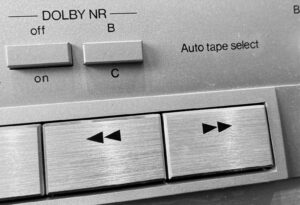 When first starting a podcast, it’s important to explain the mission from the very start. This is why the best time to do this is with the very first episode. In this post, we discuss the design of your first podcast episode along with detailed advice on how to discover your voice and an audience who will become raving fans.
When first starting a podcast, it’s important to explain the mission from the very start. This is why the best time to do this is with the very first episode. In this post, we discuss the design of your first podcast episode along with detailed advice on how to discover your voice and an audience who will become raving fans.
Solo Episode
In most cases, your first episode will only have the host(s) describing and answering questions the audience is asking themselves. The format is similar to a solo episode that has been discussed in earlier posts.
Your first episode will explain the “why” behind your podcast and how it contributes to your business. The entire explanation should align with your brand: who you help, why you help, and what makes you different.
The goal of the episode is to have listeners identify with the podcast’s mission. If they value what they hear they’ll take action and subscribe to make sure they don’t miss a single episode. This is the first step in creating a growing audience after you assemble your recording gear.
Questions Your Audience Wants Answered
After introducing yourself to the audience, rhetorically ask yourself the following questions:
-
-
- What is the name of the podcast?
- Why did you pick that name?
- Why did you decide to start this podcast?
- Who is the audience for this podcast?
- What makes this podcast different from other podcasts?
- What kind of guests will be on the podcast?
- What topics do you anticipate covering on the podcast?
- How can people connect with you, your cohost, and your company?
- How can people subscribe to the podcast?
- When can we expect the next episode?
-
Launch Episode Goals
The first episode is commonly 10-15 minutes long. It will be produced with all the intros and outros of a regular episode. The episode will train the listener on the format of the show. It will also train you as a new host. This is your opportunity to get comfortable with the microphone.
Don’t read your answers! Instead, make a list of bullets under each of the questions. After you ask yourself each question, look over the bullets and speak as if someone else had asked you the question. This will sound more natural.
Think back to all the times you had a sales meeting with a prospective client. You had no trouble answering the questions off the top of your head. Why? Because you know everything there is to know about your products and services. You’re the expert. You’re the consultant. You’re the host with all the answers.
The same is true here. Become an expert on the mission of your podcast. Then explain it as casually as you would in any conversation over a cup of coffee. Easy peasy right?
3-2-1 Lift Off
Podcasting is one of the best ways of boosting, brand, authority, influence, and trust. An engaged listener can quickly become a qualified prospect. Your ideal audience should be your ideal client. When they hear engaging episodes they will tell themselves,
“I can’t miss a single episode!”
Now that the launch episode is complete, it’s time to do an interview episode. There are skillful interviews that craft fascinating conversations. There are poor interviews that painful to listen to. What makes for a quality interview? That topic we’ll leave for another day.

